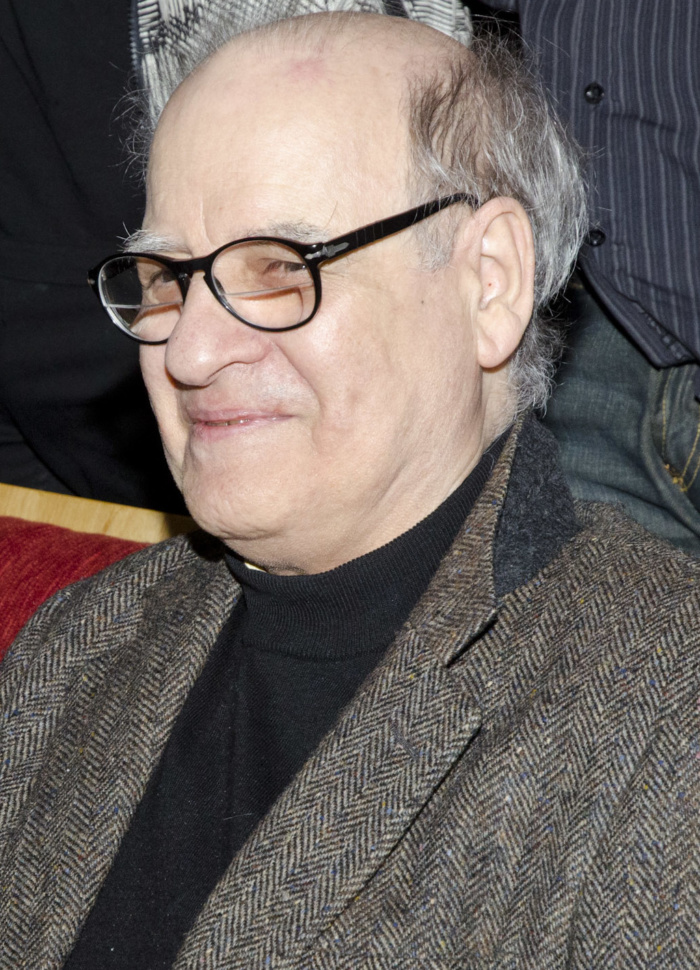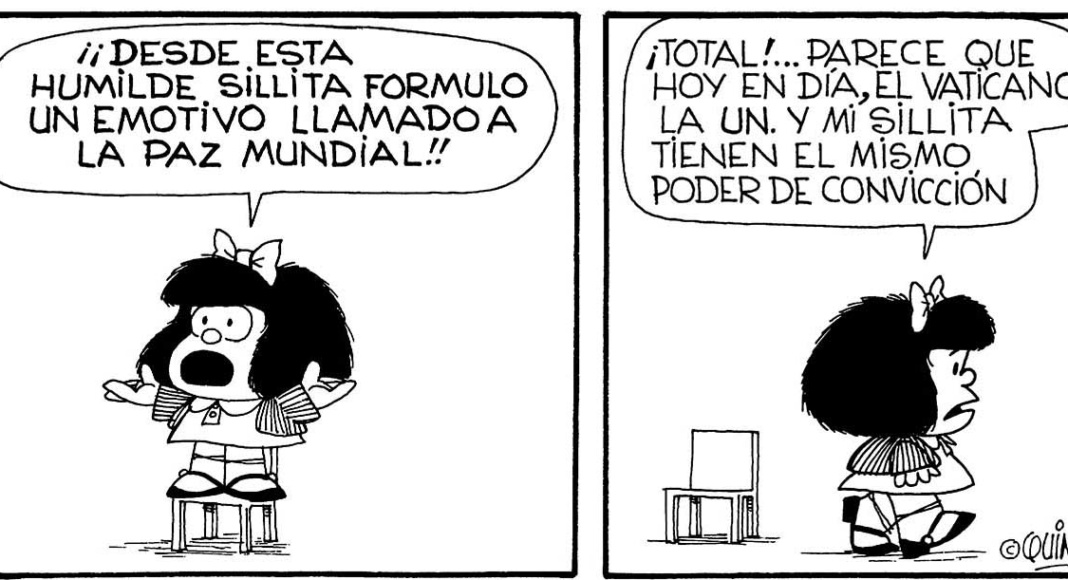Feminism, the media, communism and consumerism, Vietnam – Quino’s strip-cartoon Mafalda managed to address all these issues from the innocent, but incisive, perspective of a six-year-old girl.
The death of Argentinan cartoonist Joaquín Salvador Lavado Tejón (1932-2020), best known as Quino, has silenced one of the most famous critics of Latin American and world politics and society. Although he had many projects, the character that captured the collective imaginary was Mafalda. Her comic strips were translated into more than 30 languages. Her fame is due both to the universality of the topics she discussed, and the light heartedness and humor with which she conveyed her message.
Mafalda eventually became a staple in local newspapers throughout South America and Spain. However, the adventures of Mafalda began in 1963 with a failed marketing campaign for the electric appliance company Mansfield. A year later, the magazine Primera Plana began publishing the first comic strips. Later, she became famous with her appearances in the Argentinian newspaper El Mundo, one of the most important dailies in the country at the time. While the media in which her comic strips appeared changed constantly, her readership continued to grow.

Mafalda was vocal about world peace, the war in Vietnam and the impending nuclear Armageddon. At some point she states that she would like to be an interpreter for the UN to help nations get to agreements. Paradoxically, she was quite quiet about the situation in Argentina, because the country was living the military censorship. Nevertheless, one can conjecture what Mafalda´s opinion would be about the generals, given her unrelenting idealism about peace and justice.
Mafalda the idealist was not alone. Her best friend was Felipe, who had a vivid imagination which he was never able to reconcile with the reality he lived in. Manolito was a little businessman, terrible at school but with a keen eye for business and always ready to market his dad´s corner store. Susanita was the hopeless romantic who dreamed of the day she would be a wife and mother. Miguelito’s innocence and straightforwardness sometimes felt like a slap in the face to his friends. Libertad was openly political and the most liberal character. And Guille, Mafalda’s younger brother, acted alternatively as complement and counterpoint to his sister. Finally, Mafalda´s parents were the older generation unable to offer a single satisfying answer to the kids’ voracious curiosity and discomfort with the present.
Simultaneously, the kids combined their adult traits with childish attitudes, from despising soup, to suffering because they had homework, to reading comic strips, playing cowboys and at times letting television dictate terms to their imagination.
Mafalda captured public imagination to an extraordinary extent. For example, when in 1973 a movie of her stories was released, the audience complained that Mafalda´s voice was not the one they had imagined. Quino´s reaction was to say that if another film was released, it would be mute. Another time, when Quino was going to receive the Principe the Asturias prize in 2014, someone asked him if Mafalda´s parents would be divorced by now. There were many arguments thrown back and forth by the rest of the audience. When it was Quino´s turn to reply, he said that they were only drawings. Similarly, when they asked him how would a grown up Mafalda would be, he retorted that she probably would not have grown up since the Argentinian dictatorship would have made her disappear.
In context, Mafalda was a voice for Latin America in the 1960s and 70s. These were times of political censorship in the southern cone and of communist struggles and US intervention throughout the continent. While musicians and authors had to go into exile during the military regime, Quino managed to survive the censorship and continue to be published.
In part this was because the censors considered Mafalda to be merely a comic strip intended for kids. In part, that she expressed her discomfort not through direct confrontation, but through a message of peace.
But Mafalda was a revolutionary, and the comic strip was indeed intended for an adult audience. In that sense, Mafalda was a small breath of freedom surviving the stifling climate of the time. She is also testimony of the past and how it bears upon the present, and the character through which Quino will be remembered.



